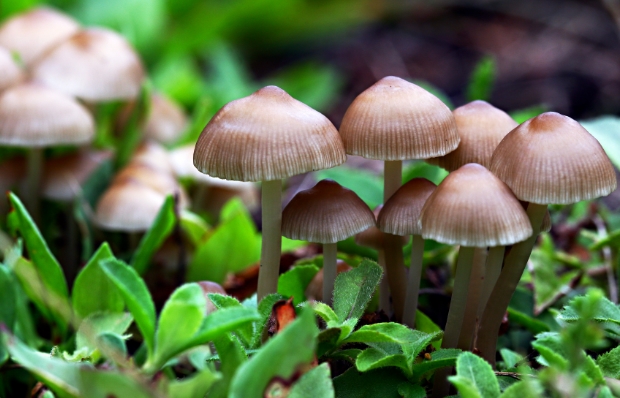
Over the last five years, research has consistently pointed to a number of psychedelic drugs and plants as novel treatments for an array of mental health issues: depression, post-traumatic stress disorder (PTSD), anxiety and more. Psilocybin mushrooms, cannabis and kratom are some of the most promising medicinal plants, while other pharmaceutical psychedelics (LSD, MDMA and ketamine) are being studied for their potential medicinal value as well. The hope for plant medicines making their big debut and gaining acceptance as “real” treatments, however, is being cut short by the profit-seeking pharmaceutical industry.
As is par for the course, the pharma industry wants to capitalize on what makes medicinal plants and psychedelic drugs so therapeutic, while keeping the actual substances themselves off the market and (in some cases) highly illegal. It’s a tale as old as time, isn’t it?
Illegal substances inspire “novel” new drugs for Big Pharma
The pharmaceutical industry has always put profits before people; there’s little debate about that. But what a sham it is, when the American people are outlawed from having access to innumerable plant medicines (like every cannabinoid in the cannabis plant), that Big Pharma can synthesize these medicinal compounds in a lab, and then sell their “new” drug at a choice price point.
These are not “new” drugs; they are synthetic versions of the real thing — at least in the cases of prohibited plants like cannabis, psilocybin mushrooms (magic mushrooms or shrooms), kratom and the like.
100% organic essential oil sets now available for your home and personal care, including Rosemary, Oregano, Eucalyptus, Tea Tree, Clary Sage and more, all 100% organic and laboratory tested for safety. A multitude of uses, from stress reduction to topical first aid. See the complete listing here, and help support this news site.
For example, Business Insider reports that shrooms have inspired Big Pharma’s newest concoctions for treating mental illnesses like depression and anxiety. But the madness doesn’t end there.
Ketamine is another highly regulated substance that the industry is now looking towards as they try to develop the next generation of psychiatric pharmaceuticals. Pharma company Allergan has a ketamine-inspired drug that’s already obtained a special designation from the FDA to “speed” through the approval process.
Yes, the industry really has no shame. The expedited approval process for the “next big thing” in pharma-land is even more disturbing when you consider the fact that scientists don’t even actually understand how ketamine alleviates depression. Ketamine is an anesthetic-turned-party-drug that’s known for inducing euphoria. Perhaps that’s why it makes depressed patients feel better?
Should Big Pharma be able to patent plant medicines?
One of the most confounding aspects of the issue with Big Pharma using plants to inspire new drugs is this: If the plant itself is illegal, why should the pharmaceutical industry be able to profit off something that the American people literally are not allowed to grow themselves? It is truly a scam for the ages, and it just goes to show how deep Big Pharma’s pockets are (and how many government officials have a hand in those pockets, too).
The cannabis plant is undoubtedly the strongest evidence of that: Despite a large (and still growing) body of research that points to a number of medicinal benefits, cannabis and its various compounds continue to remain classified as Schedule I drugs by the DEA — a classification reserved for only the most potent of drugs, with no medicinal value and a high potential for abuse.
For reference, cocaine and methamphetamine (two highly addictive, damaging substances) are classified as being lower on the totem pole of risk than marijuana. Does the DEA live in a different dimension? Because the FDA has already approved one cannabis-based medicine (Marinol) and a second one is on the way.
Epidiolex, a medication based on the cannabis compound known as cannabidiol, is on-track to win FDA approval for the treatment of two childhood seizure disorders. Many children are already successfully being treated for conditions like Dravet syndrome with CBD oil or the cannabis plant itself — which raises one substantial question: What do we need Big Pharma for, exactly?
Learn more about medicinal plants at AlternativeMedicine.
Sources for this article include:
BusinessInsider
ScientificAmerican
DEA.gov
